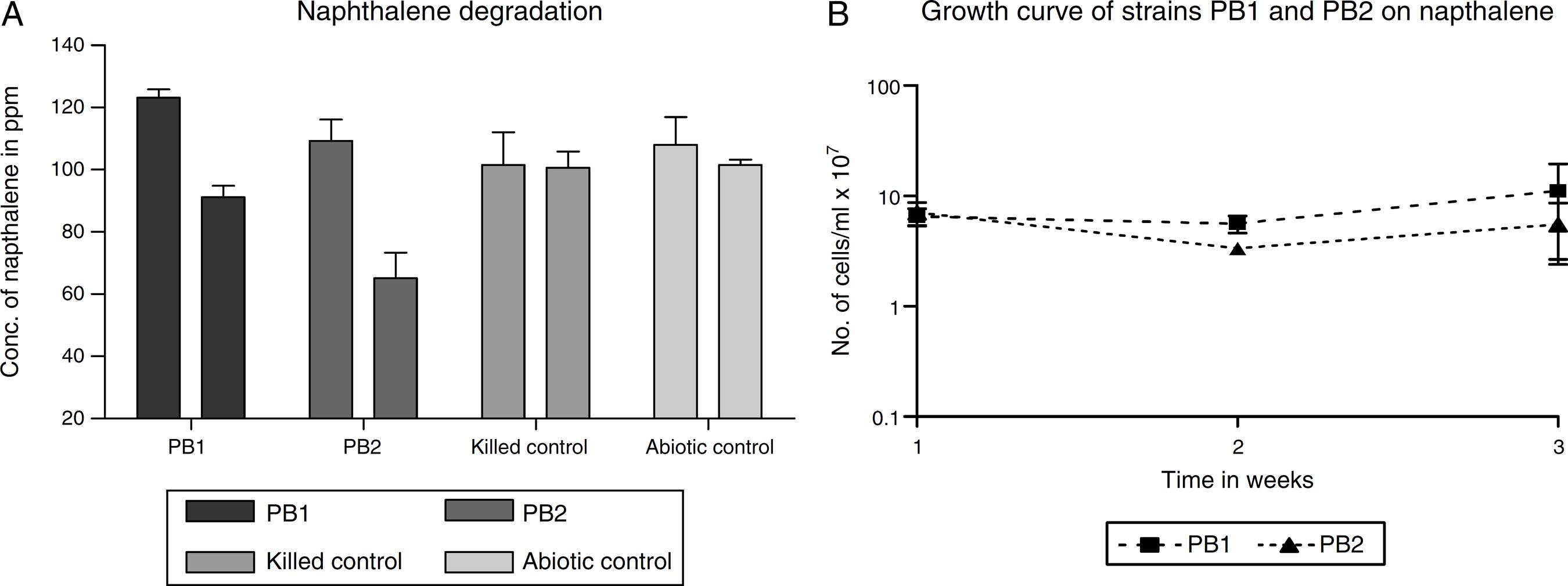ABSTRACT
The goal of this investigation was to isolate competent polynuclear aromatic hydrocarbons degraders that can utilize polynuclear aromatic hydrocarbons of former industrial sites at McDoel Switchyard in Bloomington, Indiana. Using conventional enrichment method based on soil slurry, we isolated, screened and purified two bacterial species strains PB1 and PB2. Applying the ribotyping technique using the 16S rRNA gene analysis, the strains were assigned to the genus Pseudomonas (Pseudomonas plecoglossicida strain PB1 and Pseudomonas sp. PB2). Both isolates showed promising metabolic capacity on pyrene sprayed MS agar plates during the preliminary investigations. Using time course studies in the liquid cultures at calculated concentrations 123, 64, 97 and 94 ppm for naphthalene, chrysene, fluroanthene and pyrene, P. plecoglossicida strain PB1 and Pseudomonas sp. PB2 showed partial utilization of the polynuclear aromatic hydrocarbons. Naphthalene was degraded between 26% and 40%, chrysene 14% and 16%, fluroanthene 5% and 7%; pyrene 8% and 13% by P. plecoglossicida strain PB1 and Pseudomonas sp. PB2 respectively. Based on their growth profile, we developed a model R2 = 1 to predict the degradation rate of slow polynuclear aromatic hydrocarbon-degraders where all the necessary parameters are constant. From this investigation, we confirm that the former industrial site soil microbial communities may be explored for the biorestoration of the industrial site.
Keywords:
16S rRNA gene analysis; Former industrial sites; Soil microbial communities; Competent PAH degraders








